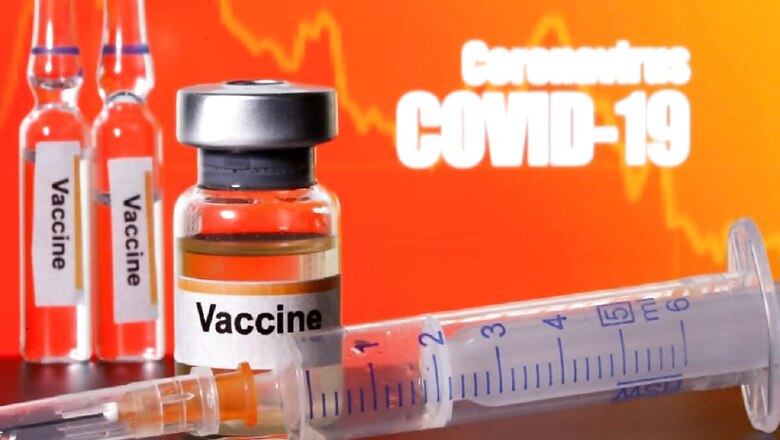
views
As we move closer to developing a vaccine for Covid-19, CNN-News 18's Sneha Mordani spoke to Dr Poonam Khetrpal Singh, WHO director for South East Asia, about how a vaccine once developed would be accessed fairly. She also talks about India's response to coronavirus.
Here is an exclusive conversation.
How can the WHO ensure equitable distribution of the vaccine once a vaccine is ready?
For an equitable response to the Covid-19 pandemic, in April, a global collaboration of governments, global health organisations, civil society groups, and philanthropies came together to form access to Covid-19 tools accelerator, or the ACT accelerator.
There are four pillars under the act accelerator of which vaccines is one. COVAX has been established to manage the large diverse portfolios of the Covid-19 vaccine that are under development to ensure global sharing of risks associated with development of the coronavirus vaccines and equitable access based on fair allocation.
The COVAX facility is a mechanism designed to ensure rapid fair and equitable access to Covid-19 vaccines worldwide. By connecting pool of demand to a pool of supply it will allow countries to access a broad portfolio and allow manufacturers access to a demand secure market. All countries are being invited to participate in this facility. The countries are expected to access to vaccines procured by the facility at the negotiated price.
The facility aims to deliver two billion doses by end of 2021 to prioritise population groups in all participating countries. WHO is committed to and will continue to advocate to countries to share vaccines and drugs with all countries and people.
How do you envisage India's role in vaccine development?
India is among the largest manufacturers and is called the pharmacy of the world. Undoubtedly, India will have a role to play in making available Covid vaccine globally.
How do you view India's response vis a vis 'Atmanirbhar Bharat', the manner in which we ramped up our facilities and reduced reliance on other countries during this pandemic?
India has been demonstrating unwavering commitment in dealing with the pandemic. It has been readying and building hospitals, training doctors, ramping up testing, procuring medical needs. Additionally, the country has been harnessing local capacities and ramping up production of critical medical supplies. This has been an important and appreciable development to meet the increasing demand considering the country's population, size and the continuing need.
Do you believe that the crisis has given the country an opportunity to ramp up our healthcare system and that was much required?
The new coronavirus has affected millions. Lives and livelihoods are lost. The pandemic has demonstrated that health is central to the overall well being of a country. We clearly need to invest in our health systems and make them ready for emergencies of pandemic proportions and making them resilient to emergencies of pandemic proportions. A multi-sectoral approach and response is needed.
In the hindsight, please tell us if there was anything else that India could have differently?
India has taken proactive steps from the very beginning. However, we know that capacities wary at the national and state levels. Looking at the size and diversities, the measures taken may not be uniformly sufficient across all areas.
Scaling up facilities is a challenge and is also a constant need and a challenge. India adopted a whole of government and whole of society approach which is what is needed to respond to a pandemic. We need to continue to strengthen implementation of our core public health measures.
Test, trace and isolate and treat to break the virus transmission chains. A national risk assessment should continue to be supported and implemented through sub national or even community level risk assessment as the transmission of Covid-19 is not homogeneous. Protection of vulnerable population should be central in the decision to maintain or lift a measure. We need to continue practice social distancing. For people, cough etiquette, hand hygiene and a mask is part of our new normal.














Comments
0 comment